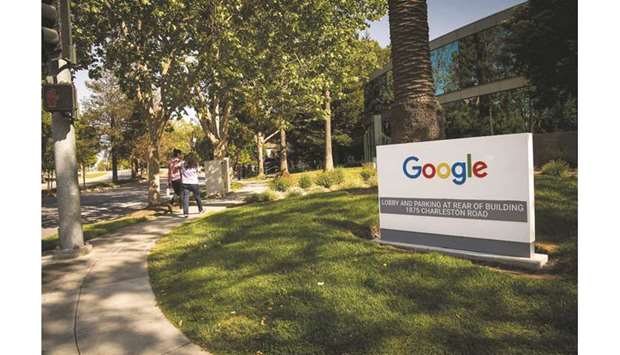A copyright infringement dispute that had little traction 2019 is en route to become the biggest copyright case of 2020.
Software copyright law, fair use law, thresholds for overturning jury verdicts, and the rightful owner of $8.8bn are all in play as Alphabet Inc’s Google fights a pair of rulings that it infringed Oracle’s Java software to help create its Android platform. The Supreme Court will be accepting briefs in the case in January and February.
“It’s potentially the most consequential copyright case in a generation,” said intellectual property attorney J Michael Keyes of Dorsey & Whitney LLP, who litigates copyright and trademark lawsuits from both sides.
The justices will decide whether the codes, known as application programming interfaces (APIs), merit copyright protection and, if they do, whether Google’s use of them was fair. Some software developer groups and tech companies argue that APIs are functional code that software developers routinely share. Copyright-intensive industry and advocacy groups say Google’s efforts crossed the line and would devalue development of important code.
The high court may use the case as an opportunity ”try to bolster the role of the jury,” intellectual property attorney Paul J Reilly said.
“Fair use is an issue of fact that has to go to a jury, but then it was reversed as a matter of law. That seems odd to me,” Reilly, Baker Botts LLP’s section chair of branding, advertising and copyright, said. “I think the jury deference is going to be an important issue for the court to decide.”
The Supreme Court will hand down rulings in two other cases in 2020 that will determine how copyright law applies to states. In Allen v. Cooper, the justices will determine whether states rights bar videographer Frederick Allen from suing the state of North Carolina for commandeering video he shot underwater of Blackbeard’s pirate ship.
The high court also will decide whether annotated state laws that are officially endorsed by the state can be protected by copyright in Georgia v. Public.Resource.org.
The music industry also could shake up copyright law in 2020, as industry leaders push forward efforts to more efficiently get billions in digital streaming royalties to artists and publishers.
The Mechanical Licensing Collective, created by a 2018 law, will spend the next year striving to create an efficient system for collecting money and data from streaming services like Spotify so it can become fully operational by January 1, 2021.
Meanwhile, courts will continue to wrestle with the boundary between influence and infringement—and when a judge can make that call.
The full US Court of Appeals for the Ninth Circuit will determine whether a three-judge panel correctly ruled that Led Zeppelin didn’t infringe another song to create the famed “Stairway to Heaven” introduction. Taylor Swift will return to California district court to defend herself against an infringement suit alleging “Shake It Off” ripped off another singer’s lyrics after the Ninth Circuit reversed a dismissal.
Copyright attorney Wesley Lewis of Haynes and Boone LLP, who represents media companies, said the bar appears to be getting “progressively lower” for what can be protected, and said the issue will “loom large” in 2020.
On top of all that, the music industry may be left reeling in 2020 if the Department of Justice alters or abolishes longstanding consent decrees regulating what performance rights organisations can charge radio stations and restaurants.

Pedestrians walk past signage at Google headquarters in Mountain View, California. Software copyright law, fair use law, thresholds for overturning jury verdicts, and the rightful owner of $8.8bn are all in play as Google fights a pair of rulings that it infringed Oracle’s Java software to help create its Android platform.
